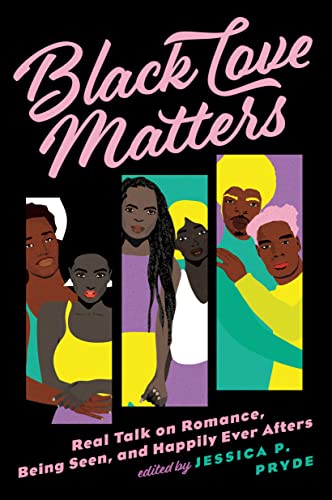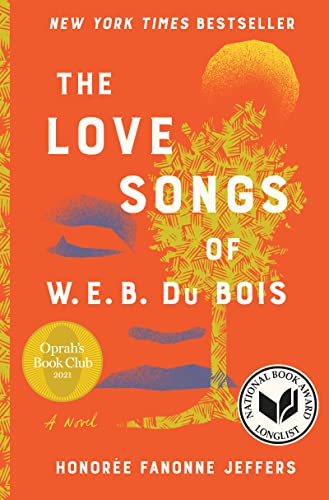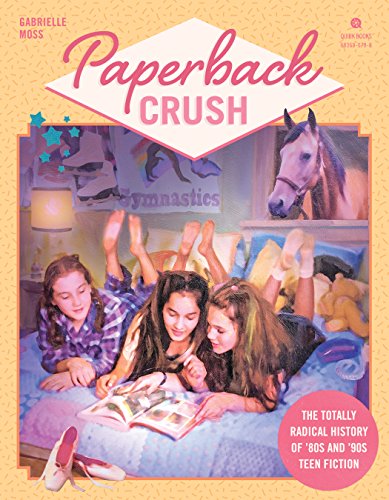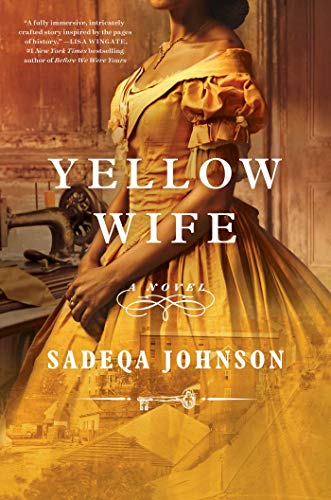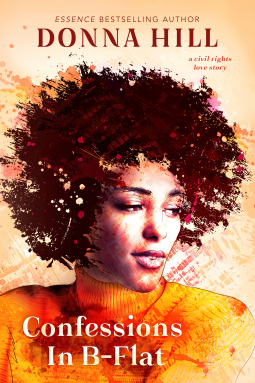Black Love Matters. Jessica P. Pryde, ed. 2022. Berkley. 285 pages. [Source: Public Library.] As a proud lover of all things Black romance, I had to get my hands on this anthology which features essays from some of the most visible names in the field of Black romance publishing and scholarship. With this book, Pryde has brought together long-established names as well as those who are on their rise to consider the ways that Black Love Matters. The result is a book filled with contributors representing all facets of Black life and love, sharing their insights on the genre and what it means for them or critically examining the space that Black love occupies in literature. One of the greatest take aways here is that Black Love Matters gives space to ask the question — why do we need to center Black love? If romance is one of the best-selling segments of the publishing industry, why are Black stories still lacking in representation? In responding to this topic, the authors share their own experiences as creators, consumers, and scholars of Black romance. What I love about this book is that its chapters reflect the complexity of Black writing; there are…
The Love Songs of W.E.B. Du Bois. Honoree Fanonne Jeffers. 2021. Harper. 801 pages. [Source: Public library.] The Love Songs of W.E.B. Du Bois is an early contender for my favorite read of 2022. It recounts the history of the Pinchard family through the juxtaposition of modern-day experiences of its protagonist, Ailey Garfield, and flashbacks to the lives of her ancestors as far back as Africa during the trans-Atlantic slave trade. Throughout the book, Jeffers pulls the reader forward and backward through centuries, giving snapshots of the family’s experiences in and around the rural town of Chicasetta, Georgia. Clocking in at just over 800 pages, Love Songs is a substantive read, not only in length but also in breadth. Jeffers addresses a wide range of topics related to slavery in the U.S., and by centering the small town she’s able to dig into topics like racism, segregation, and colorism. Jeffers’ approach obviously centers the enslavement of Black members of the Pinchard family, but in doing so, she also examines the complicated relationships that included indigenous people — the Creek who predated plantations — and the white families that established plantations. As the title alludes to, the scholarship of W.E.B. Du…
Paperback Crush. Gabrielle Moss. 2021. Quirk Books. 257 pages. [Source: Public library.] Be still, my heart. As a child of the ’80s, I longed for few things more than the day the Scholastic book flyer was distributed at school or a Saturday spent at the mall with my friends, roaming through Sam Goody & Waldenbooks while figuring out when we’d get our Cinnabon and Orange Julius fix. My world has always been consumed by books, but nothing brings on nostalgia like remembering the thousands of hours I spent devouring teen fiction. Series like The Baby-Sitters Club, Sweet Valley High, and, of course, R.L. Stine’s Fear Street had a chokehold not just on me, but countless teen readers and Paperback Crush is a retrospective of the genre with attention paid to heavy hitters and lesser-known books. With Paperback Crush, Moss revisits some of the most seminal teen fiction of the 1980s and ’90s with remarkable depth. While it’s not a scholarly read, it’s clear Moss conducted extensive research on the history of teen fiction and its content’s evolution over time. There are readers who would argue that this era of teen fiction is a “golden era” of sorts, without considering what…
Yellow Wife. Sadeqa Johnson. 2021. Simon & Schuster. 287 pages. [Source: Public Library.] Yellow Wife is nothing short of captivating, with its look into the life of Pheby Delores Brown, a young enslaved girl on the cusp of womanhood who has been told her entire life that she’d see more than the plantation. Instead of the freedom she’d been promised, she finds herself heartbroken, sold to one of the most infamous slave jails in Virginia, and then unwilling subject of the owner’s desire. As with any book with an antebellum setting, slavery is a central part of this story. The plot, however, steps beyond that by highlighting how the institution of slavery manifests in nearly every facet of life. The rape that a slave endured at the hands of her enslaver. The duality of Pheby’s father’s special treatment of her while she remained his property and under the thumb of his abusive wife. The colorism that granted Pheby access to affluence and an element of relative physical and economic safety. Despite Pheby being the central character, Johnson does a solid job of using peripheral characters to highlight these issues. I expected Pheby to be more of a “tragic mulatto” character….
Confessions in B Flat. Donna Hill. 2020. Sideways Books. 306 pages. [Source: ARC provided courtesy of NetGalley.] Confessions in B Flat was a particular treat for me. I am, admittedly, not a huge fan of historical fiction. But the lure of its description was too much for me to walk away. Two young Civil Rights activists from differing ideologies find themselves struggling to figure out if a relationship can withstand their polarized views. Anita and Jason are, in many ways, like oil and water. Despite coming from a “bougie” background, Anita, a part-time waitress and poet, moves to the beat of her own drum and is often compelled by a sense of doing what fulfills her. She finds herself a follower of Malcolm X and is deeply committed to all Harlem has to give. Jason, a Georgia native who comes north to spread the teaching of Dr. Martin Luther King, Jr., is more bound by duty and expectation. He wants to do what is right, even if it comes with a sacrifice. Their initial interactions are fraught with conflict about how they approach the fight for civil rights, but their chemistry is undeniable. Hill masterfully captured the culture wars that…

